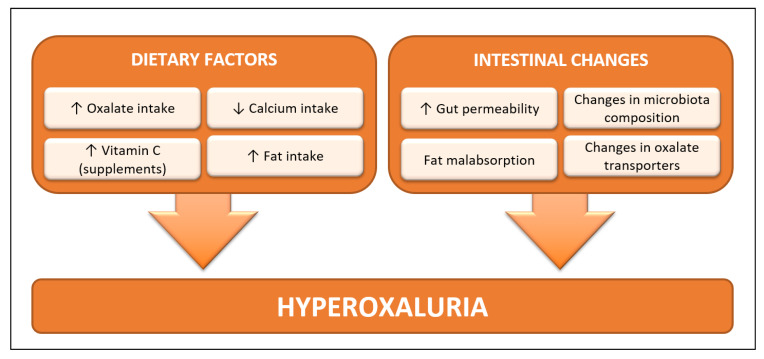Figure 1.
Hypothetical underlying mechanisms for hyperoxaluria after bariatric surgery (BS). A diet rich in oxalate or poor in calcium content decreases the amount of poorly soluble, nonabsorbable calcium oxalate (CaOx) complexes in the intestinal lumen leading to a higher amount of free oxalate for absorption. Vitamin C (ascorbic acid) supplements are metabolized to oxalate contributing to hyperoxaluria. BS predisposes to the development of fat malabsorption, which in the presence of a high dietary fat intake further enhances free oxalate absorption due to the sequestration of calcium by fat. The increased intestinal exposure to complexes of unconjugated bile salts and fatty acids could affect microbiota composition and also decrease the colonization by Oxalobacter formigenes and other oxalate-degrading bacteria. Increased gut permeability induced by excessive unconjugated bile salts and other factors may occur. Finally, changes in intestinal oxalate transporters could lead to increased net intestinal oxalate absorption.

